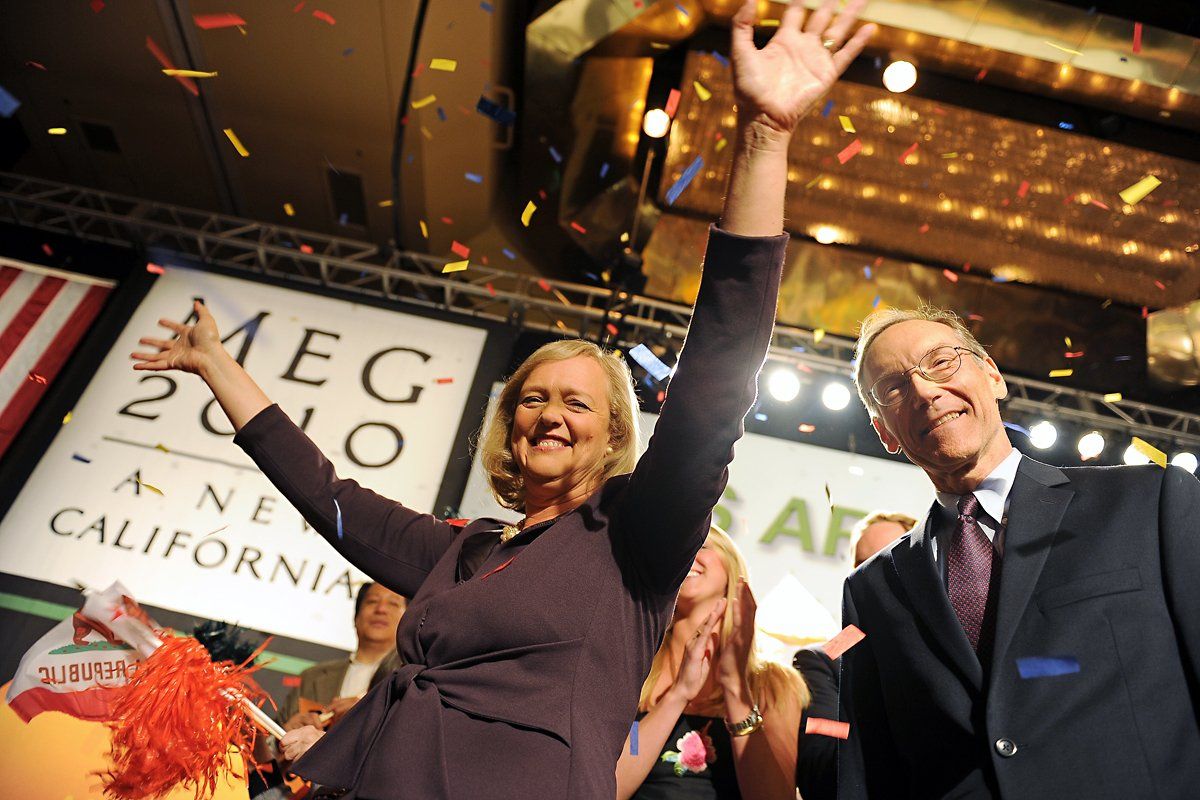
As the father of two formidable daughters (one is 5, the other 2, but they already seem formidable to me), I loved the splendid evening female candidates had last Tuesday in primaries from South Carolina to Arkansas to California. Leaving aside the politics of the winners, the returns ratified the cultural and political shift that took place in 2008, when Hillary Clinton and Sarah Palin played central roles, in effect establishing a new normal in which female candidates more often than not stand on the same ground with male ones.
President Obama's victory in 2008 was of such immense symbolic significance in terms of our racial history that it has been tempting to skip over, or at least take for granted, the progress made on the gender front. Is the fabled glass ceiling broken forever? Of course not, no more than the color line has been erased for eternity. Men continue to hold a hugely disproportionate share of elective and appointive offices. But one thing is clear: we are living in a different, and I think better, country than we were just a few years ago, for the iconography of politics has changed in ways that are impossible to undo.
African-Americans and women are now embedded in elective life. Their portraits will hang in capitols, their examples will be taught and pointed to. Yet the kingdom of heaven is not at hand; diversity is a value worth cherishing and nurturing, but it does not repeal the laws and limitations of reality. Leaders from different backgrounds and perspectives are likely to be just as flawed and as susceptible to error as any other human being (though it is hard to see how they could be worse than the white men who have reigned for so long), and their legacies will be fair game for debate. We can celebrate their irreversible arrival in the arena without reflexively lionizing them.
The larger female presence in the arena—or, more precisely, on the stage—means a lot in my house. On the weekend between the 2008 Iowa caucuses and the New Hampshire primary, our daughter Mary, then 3½, was playing in the room where I was watching the Democratic presidential debate. (Mary's mother had gone out for a bit, and I am, to put it mildly, a soft touch on the discipline, go-to-bed front.)
Looking at the television, Mary asked me what was on. I said something to the effect of "These are people who want to be president." She paused, and, noting Senator Clinton on the screen, said: "But girls can't be president."
My stomach turned. It was a terrible moment. Had I somehow telegraphed diminished expectations, or gender--related limits, to this amazing little girl? I pressed her: "What do you mean? That's not true. Girls can be anything they want." Her reply: "There aren't any pictures of them." Gradually I worked out that she meant girls had not been president, not that they could not be, and she had drawn this conclusion from, of all things, a place mat of the presidents from Washington to Bush 43, a relic of a quick souvenir purchase at Reagan National. The color bar has now been broken on those knickknacks, and soon, one hopes, the gender barrier will be, too.
It will be neither easy nor quick. Companies, churches, schools, and newsrooms (including ours) should take care to do what they can to keep the progress that is most evident in the political realm going in their own institutions. Jesse Ellison, Sarah Ball, and Jessica Bennett of NEWSWEEK recently wrote a compelling piece about their generation's experience, arguing that women are underrepresented at the magazine and in other spheres of corporate life. In a cover story in April, Lisa Miller made the case that having more women within the ranks of the Catholic Church would add needed perspective to a male-dominated culture of decision making—and cover-up. Miller's new cover touches on similar themes of gender and power. This week she writes about Palin and how the former Alaska governor's appeal to Christian women illuminates the ways many of them feel about politics, faith, and culture.
During some contentious episode in the last year or so—probably over the control of Legos—my son, who is 8, realized he was losing ground and came to me with a pragmatic analysis. "I'm outnumbered," he said, "and I don't like my chances." A smart boy, if I may say so, with two very smart sisters who, like all women, should have a chance to do or be anything they want.
Uncommon Knowledge
Newsweek is committed to challenging conventional wisdom and finding connections in the search for common ground.
Newsweek is committed to challenging conventional wisdom and finding connections in the search for common ground.





